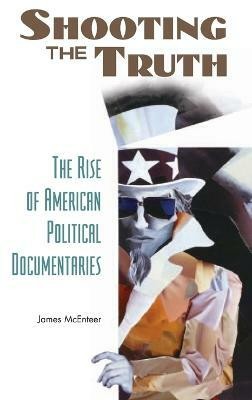Shooting the Truth(English, Hardcover, McEnteer James)
Quick Overview
Product Price Comparison
Political documentaries are more popular now than ever- Michael Moore's Fahrenheit 9/11 (2004), the top-grossing documentary film of all time, is one of many such recent films. In this incisive book, James McEnteer parses the politics of nonfiction films of recent decades, which together constitute an alternative history to many official stories offered by the government and its media minions.Tracing the origins of an oppositional documentary movement to the Vietnam era, McEnteer shows how a strong independent documentary tradition grew from television's failure to sustain a commitment to the public interest. McEnteer evaluates the work of four artists in depth-the intrepid Barbara Kopple; the puckish but deadly Michael Moore; Errol Morris, a connoisseur of human quirkiness; and anti-Bush crusader Robert Greenwald-and that of other courageous filmmakers, including Barbara Trent (The Panama Deception and Cover-Up: Behind the Iran-Contra Affair). McEnteer looks at the pioneering public affairs documentaries of Edward R. Murrow and Fred Friendly. Their 1950s CBS program, See It Now, won many awards but angered network owners who did not wish to alienate mass TV audiences with controversy. With Murrow's firing, the retreat of television from engaging civic issues in serious ways began in earnest. McEnteer devotes an entire chapter to the many 2004 documentaries made by both sides in that hotly contested presidential election. He concludes with a look at populist antiwar and antiglobalization films of Big Noise and the Guerrilla News Network, whose youthful producers push the boundaries of the documentary form.As mass media fail-now more than ever-to fulfill their watchdog role over public officials and policies, the importance of documentaries committed to telling the truth increases. Such films bear witness to important events otherwise hidden from our view. Their makers dare to refute the falsehoods passing for conventional wisdom, sometimes risking their lives or reputations to reveal the nature of those lies and the interests behind them. As Shooting the Truth clearly shows, documentaries have become an essential component for making sense of our time. This book enlarges our appreciation of contemporary nonfiction films and invites debate on the many issues it raises.


